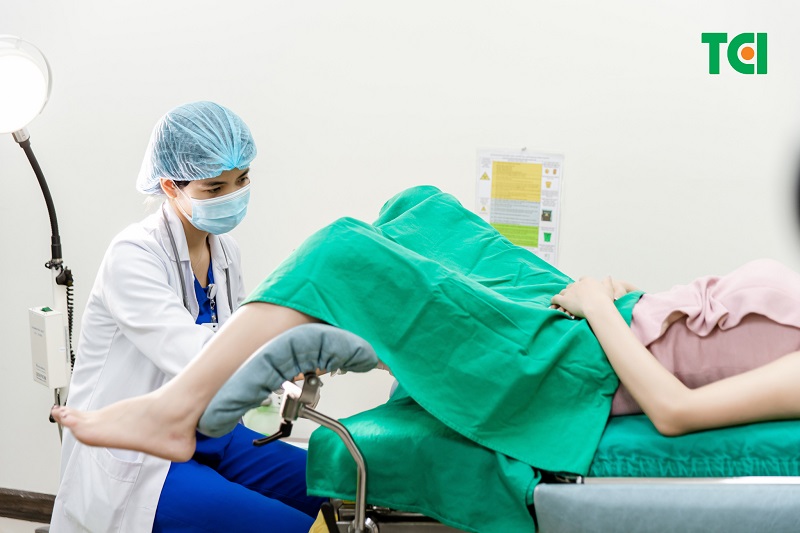“Visiting a gynecology clinic for a routine check-up every six months” is a common recommendation made by healthcare professionals. Gynecological health plays a critical role in every woman’s overall well-being. However, many women, especially those visiting for the first time, may feel hesitant or unsure about what to expect during a comprehensive exam. This article outlines the key services provided during a visit to a gynecology clinic, why they matter, and how to prepare effectively.
1. Why Regular Visits to a Gynecology Clinic Are Important
Routine gynecological check-ups are essential for early detection and prevention of serious reproductive health issues. Research indicates that up to 90% of women may experience at least one gynecological condition in their lifetime. Many of these issues, such as cervical or ovarian abnormalities, present no symptoms in early stages, making routine screening the most effective way to stay ahead of potential problems.
Benefits of regular check-ups at a gynecology clinic include:
– Early detection of conditions like uterine fibroids, ovarian cysts, or breast lumps
– Screening for gynecologic cancers
– Evaluation of fertility status and safe contraceptive planning
– Diagnosis and treatment of menstrual disorders and infections
– Counseling on sexual and reproductive health
Healthcare professionals recommend visiting a gynecology clinic at least once every six months if there are no abnormal symptoms, or every three months if you are undergoing treatment for a gynecological condition.

Women should have a gynecological health check-up every six months.
2. How to Prepare for Your Visit
Before attending a gynecological appointment, consider the following preparations:
– Bring any medical records or lab results from previous visits.
– Refrain from sexual intercourse for 24–48 hours prior to the exam.
– Avoid vaginal douching before your appointment.
– Schedule the visit outside of your menstrual period.
– Wear comfortable clothing to make the exam process easier.
Fasting is not usually required unless otherwise advised by the clinic.

You should wear comfortable clothing for a gynecological visit
3. The Examination Process at TCI Obstetrics and Gynecology Department
At TCI, the gynecology clinic follows a systematic approach to ensure comprehensive care:
3.1. Clinical Assessment
You will begin by discussing your medical history with the physician, including menstrual patterns, sexual activity, and any unusual symptoms. A breast examination is often performed to check for lumps or irregularities.
The pelvic exam includes an external observation of the vulva, followed by a speculum exam to evaluate the vaginal walls and cervix. In some cases, a bimanual exam is performed to assess the uterus and ovaries.
3.2. Diagnostic Testing
Based on your individual health status, you may undergo additional tests such as:
– Pap smear: A screening test for cervical cancer, recommended every three years for women aged 21–65.
– Vaginal swab test: Used to detect infections caused by bacteria, yeast, or parasites.
– HPV test: Identifies the presence of high-risk human papillomavirus, a leading cause of cervical cancer.
– Blood tests: Assess hormone levels, screen for STIs, and evaluate organ function.
– Gynecological ultrasound: Performed with a transvaginal probe (for sexually active women) or abdominally (for non-sexually active women) to assess the uterus and ovaries for abnormalities.

Gynecological exams include blood tests.
4. Common Gynecological Conditions Detected During Exams
Many women visit a gynecology clinic with concerns like abnormal discharge or menstrual irregularities, only to discover more complex conditions requiring attention. Common diagnoses include:
– Vaginitis: Inflammation of the vagina caused by microbial imbalance, often leading to itching, irritation, or discharge.
– Cervicitis: Inflammation of the cervix that can cause pain during intercourse or abnormal bleeding. If untreated, it may lead to infertility.
– Uterine fibroids: Benign growths in or around the uterus, often discovered incidentally during routine exams.
– Ovarian cysts: Usually benign and self-resolving, though some require monitoring or treatment.
– Menstrual disorders: Irregular, painful, or heavy periods may signal underlying gynecologic issues.
TCI physicians strongly recommend regular check-ups at a gynecology clinic as a proactive step toward long-term health. Women should schedule routine visits every six months or follow physician guidance if symptoms are present. With an experienced team and advanced technology, TCI’s Department of Obstetrics and Gynecology is committed to helping women detect and manage gynecological conditions early, empowering a healthier and more fulfilling life.








